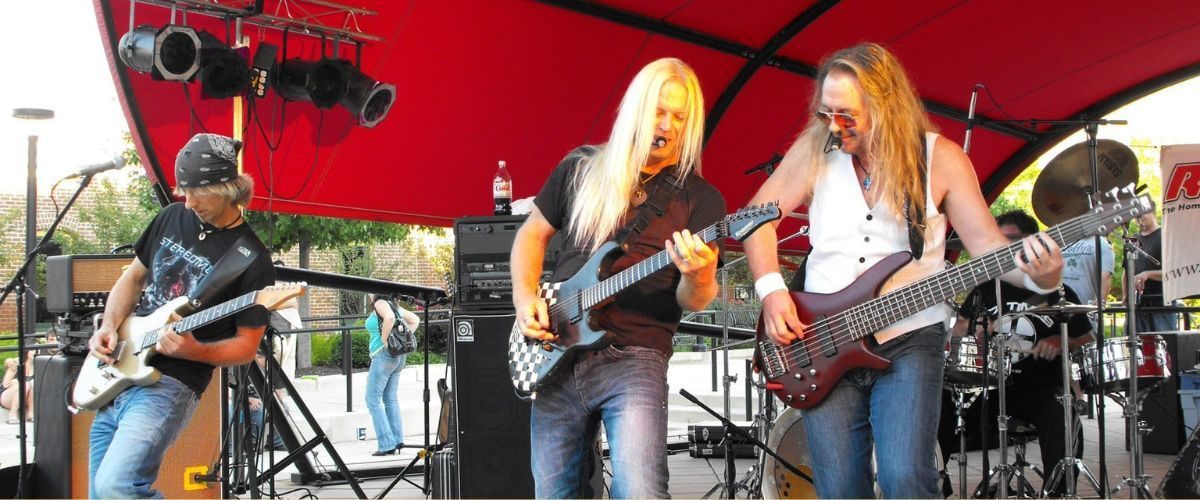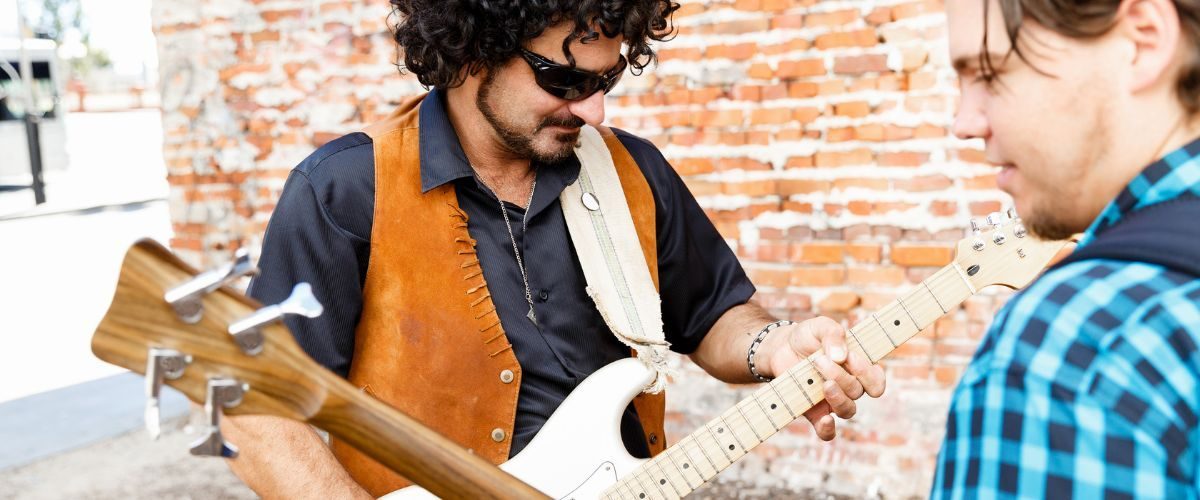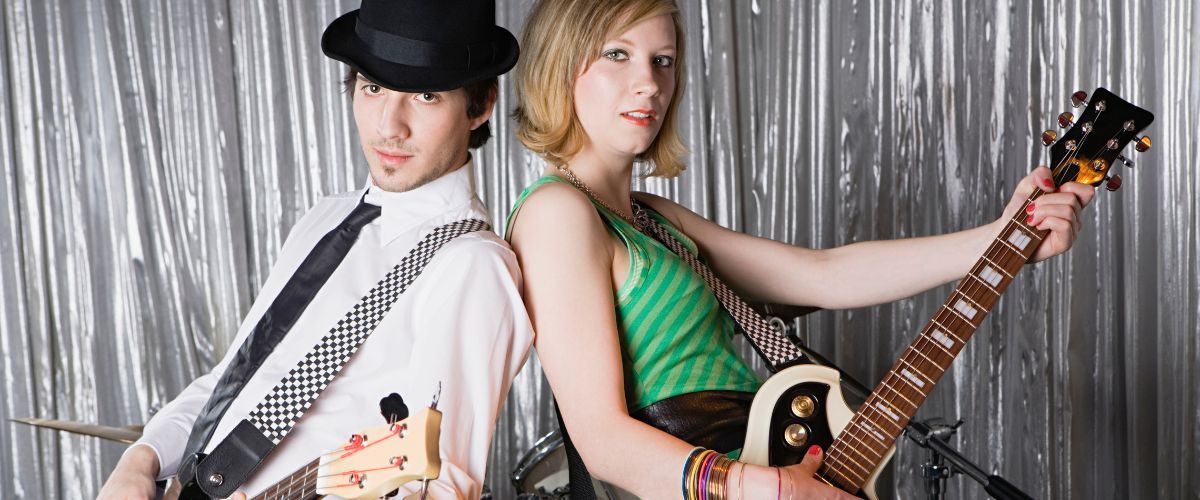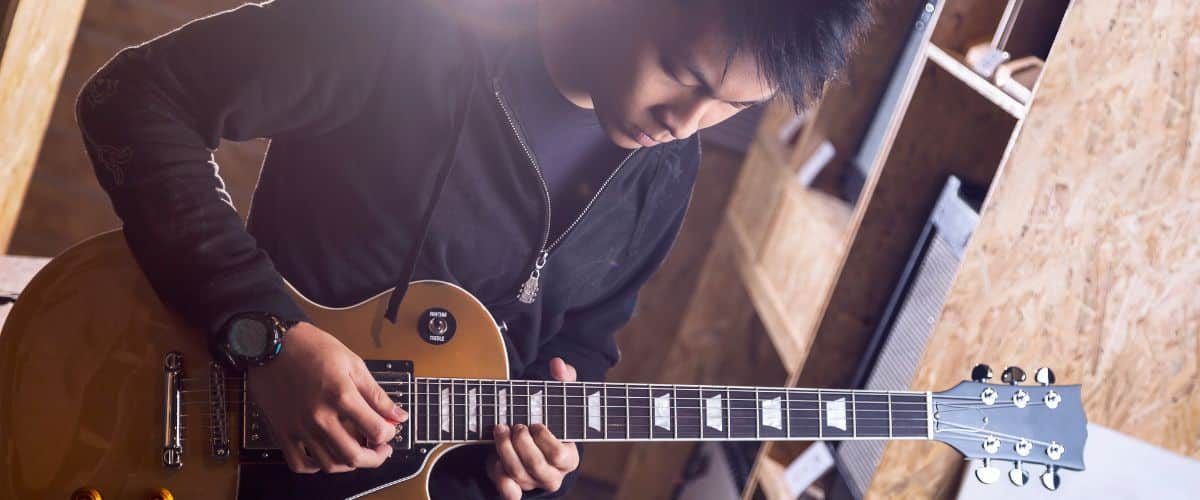Have you ever thought strumming a guitar could turn you into a social butterfly? Research shows that playing the electric guitar can boost your social skills by an astonishing 30%!
Imagine shredding on stage and making friends off it—now that’s what I call multitasking.

Don’t just take our word for it; let’s dive into the findings from a study published in Frontiers in Psychology. The study reveals fascinating insights into how this rock-and-roll hobby can significantly enhance social interactions.
This groundbreaking research highlights the surprising link between mastering guitar riffs and building better social connections. If improving your social life is music to your ears, read on to discover how learning the electric guitar can help you hit all the right notes.
The Psychology Behind Social Skills Enhancement

When people engage in music, it often leads to improved emotional intelligence and empathy. A study published in Frontiers in Psychology demonstrated that musicians, particularly those who play the electric guitar, develop an increased ability to read social cues and respond empathetically.
Music stimulates brain regions involved in emotion regulation, leading to better interpersonal skills. Players often synchronize their actions and emotions, fostering a sense of unity and camaraderie.
Playing the electric guitar in a band or group setting promotes teamwork and understanding others. This experience mirrors social interactions in daily life, teaching musicians to read body language and emotional cues.
Building Confidence and Social Presence

Playing the electric guitar boosts self-esteem and presence. Each mastered song is a victory, fostering a sense of achievement. This newfound confidence often translates into social settings.
Performing in front of an audience, even a small one, can be exhilarating. It requires bravery and poise, qualities that are inevitably polished with practice.
Socially, electric guitarists often find themselves more engaged in conversations and social gatherings. Their skills make them exciting and approachable, and who doesn’t want to be the life of the party?
Enhancing Communication Skills

Playing the electric guitar often requires musicians to communicate complex ideas quickly and clearly. This improvement is linked to the necessity of understanding and conveying musical concepts.
Guitar players frequently find themselves in situations where they must explain song structures or chord progressions.
The ability to articulate these elements translates to enhanced verbal communication skills outside the musical context.
Moreover, listening attentively to other musicians fosters better listening skills, which are crucial for effective communication. Engaging in call-and-response sessions during jam sessions can be particularly beneficial. These interactions train players to be more responsive and perceptive in conversations.
Case Studies and Evidence

The study highlighted how music sessions, including electric guitar playing, can foster better group dynamics. Participants who played together reported improved communication and teamwork.
For instance, during a study in which individuals formed bands, researchers noted a 30% increase in their ability to collaborate efficiently. Often central to these sessions, the electric guitar acted as a social glue, bringing participants closer.
Furthermore, these sessions often reduced social anxiety among players. The shared goal of creating music led to more open interactions, making it easier for participants to express themselves and connect with others.
Quantitative Research Findings

Quantitative research provides a different angle on how electric guitar playing enhances social skills. The study also measured social skill improvement through surveys conducted before and after a 6-month guitar course.
Participants reported a noticeable 30% boost in their social interactions. The scales used in these surveys focused on various aspects, such as initiating conversations, maintaining eye contact, and expressing thoughts coherently.
Moreover, statistical analysis showed that these improvements were not just subjective feelings but were consistently recorded across different age groups. The data suggests that learning the electric guitar could be a fun and effective way to enhance social skills systematically.
Practical Tips for Integrating Guitar Playing into Social Situations

Creating a welcoming space for joint learning can make playing the electric guitar much more fun and engaging. Organize regular jam sessions at home or in a friendly communal space.
Invite others who share an interest in music. These can be friends, family members, or local musicians.
Ensure the environment is relaxed and non-judgmental. Encourage sharing tips and techniques. Use online resources and apps where everyone can learn songs together.
Participating in local music groups or clubs can also be beneficial. Engaging with others in a community setting creates an excellent avenue for building social bonds.
The Link Between Electric Guitar Playing and Social Skills

Electric guitar playing does more than create great music; it can boost social skills significantly. According to a study published in Frontiers in Psychology, frequent guitar players saw a remarkable 30% improvement in social interactions.
Imagine jamming with friends, then realizing you’re also becoming a social butterfly—talk about killing two birds with one stone!
Musicians in the study reported better team collaboration and increased confidence in social settings. Those who regularly played together found themselves bonding faster.
Playing an electric guitar can foster a sense of community. It sparks conversations and opportunities to meet like-minded individuals. So, grab that guitar and start strumming your way to better social skills.
If science says so, who can argue? Better social interactions might be a riff away!
ABOUT:
Robert Emery created Ted’s List during the lockdown of Covid-19. Aside from entertaining audiences worldwide, he tries to inspire the young musicians of tomorrow. Ted’s List can help enormously with this task, as all the writers are world-class, professional musicians. Ted’s List covers all instruments, from Electric Guitar to Violin and Clarinet. Each instrument has a set of dedicated help articles, giving instructional advice on how to play the instrument, and how to improve. There are also informative reviews based on specific instruments, to help the musician choose the best instrument for them.
MEDIA CONTACT INFORMATION:
All press enquiries go to:
Paul Smith – Head of Press/PR
info (at) teds-list.com


